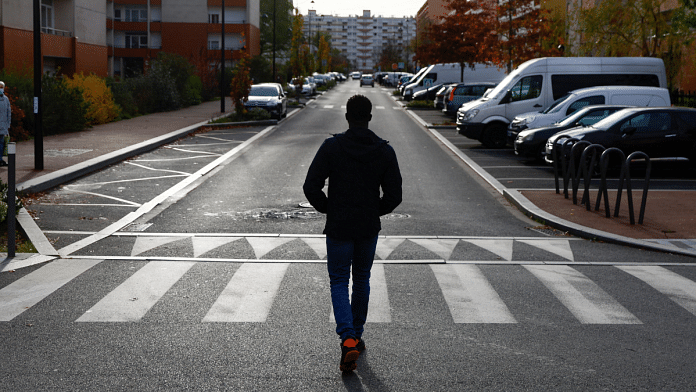New Delhi: While racial discrimination has previously known to cause psychological stress, and further biological dysregulation which can result in accelerated aging in those who are discriminated against — a new study has found that the effects of discrimination also impair one’s brain-gut microbiome (BGM) system.
The BGM is a communication pathway between the nervous system, which links emotional and cognitive regions of the brain with intestinal functions. It is also called the gut-brain axis.
The study found that racial discrimination showed alterations in brain networks dealing with emotion, cognition and self-perception, contributing to greater anxiety and depression. But additionally, BGM-related issues were also noted. However, these varied by race and ethnicity, pointing to greater physical health inequalities.
The study was led by Tien S. Dong, MD, PhD, and Gilbert C. Gee, PhD, at The University of California, Los Angeles, and published in Biological Psychiatry.
The study was conducted on White, Black, Hispanic and Asian individuals. For White people, discrimination caused anxiety, but no gut inflammation.
For Asians, psychological effects manifested into behavioural and physiological symptoms. But among the Black and Hispanic people, increased systemic inflammation was also found along with psychological distress.
Previous studies have noted the pronounced disparities in the effects of discrimination among various races. One study said that in exclusively Asian immigrants, discrimination caused increased obesity. Another showed discrimination always led to more depression and substance abuse among Latin Americans.
The study was conducted on 154 adults from Los Angeles, among the communities and from various clinics. Blood and stool samples, self-reported race, survey questionnaires and magnetic resonance imaging (MRI) data was used to carry out the study.
Primarily, the Everyday Discrimination Scale (EDS) was used to measure discrimination. This scale which takes five to ten minutes to administer, marks subjective experiences of daily discrimination across nine elements which assess the person’s life. Of the 154 participants, 80 reported high discrimination while 74 reported low discrimination.
White people reported gender and age as the most common reasons for discrimination while the Black, Hispanic and Asian communities, cited race as the primary reason.
White participants also had a “chaotic” enhanced resting-state connectivity in their emotional network of their brains, which highlighted an inability to cope with discrimination as compared to other races.
Gut microbiome and metabolite differences
Differences in gut microbiome were heavily pronounced among different ethnicities. Black people showed differences in nine types of bacteria, compared to White participants who saw changes in seven bacterial species.
High levels of bacteria such as Prevotella, Coprococcus and Tyzzerella, and lower levels of species belonging to bacteroides, parabacteroides, and ruminococcaceae were found in those who claimed to suffer high discrimination compared to low, among Blacks.
Among Hispanic people, those who reported higher levels of discrimination had higher level of bacteroides stercosis, which is associated with a higher risk of colon cancer and lower levels of other metabolic acids.
For Asian people, 11 fecal metabolites were higher in participants with high discrimination as compared to low. These changes in metabolites may suggest the dietary preferences of fatty foods in Asians who experience discrimination.
While findings suggest that the Black community displayed the lowest markers of anxiety and depression and showed overall better resilience than Asians, Hispanic people and White people — higher levels of inflammation in their BGM system were noted, stressing that the physiological effect of racial discrimination is far more than the psychological effect in the community.
John Krystal, MD, editor of Biological Psychiatry, said, “This new study sheds light on the broad impact of exposure to racism on emotions, brain activity, inflammatory markers in the blood, and the composition of the gut microbiome. We would not be surprised to learn that exposure to racism affects how we feel and how we cope with this exposure and other life stresses. However, this study goes further to highlight brain patterns of response to racism and other factors that affect physical health, including the types of bacteria growing in the gut and the levels of inflammation in the body. These are factors that influence many disease processes in the body.”
Also read: ‘If you are Black, you should walk,’ rampant racism at Ukraine border for droves fleeing



